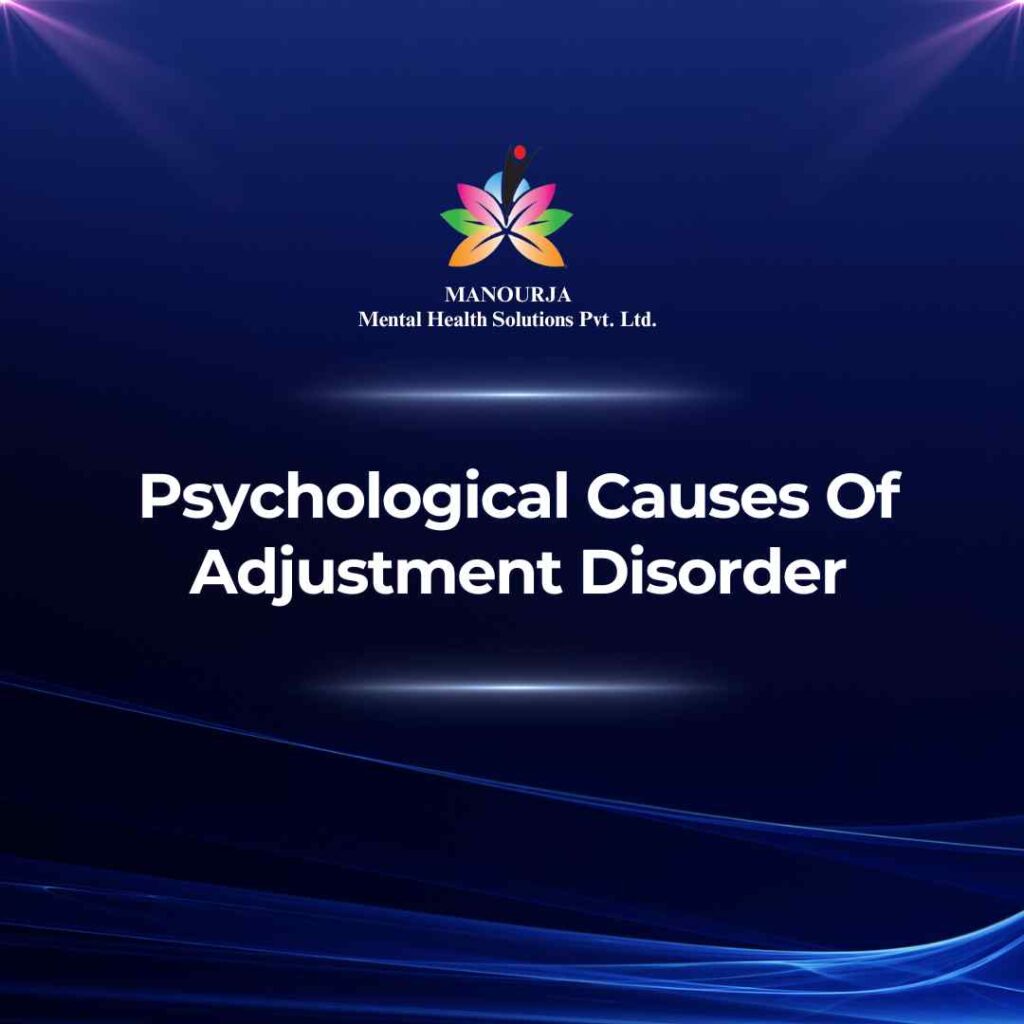Psychological Causes of Adjustment Disorder

Adjustment disorder is primarily a response to a significant stressor or life change, but its onset is influenced by various psychological factors that affect how individuals perceive, cope with, and react to stress. Here are several key psychological causes of adjustment disorder:
- Cognitive Appraisal of Stress: The way a person interprets and evaluates a stressor in their life plays a crucial role in how they react to it. If a person perceives a situation as threatening, overwhelming, or beyond their control, they are more likely to develop an adjustment disorder. This cognitive appraisal significantly influences whether a stressor leads to a disorder.
- Previous Mental Health Issues: Individuals with a history of psychological difficulties or mental health disorders are more susceptible to developing adjustment disorder when faced with new stressors. Previous conditions like anxiety, depression, or PTSD can predispose someone to react more intensely to additional stress.
- Coping Skills and Resilience: The presence or absence of effective coping mechanisms significantly impacts one’s ability to manage stress. Individuals with limited coping skills or low resilience may find it more challenging to adapt to changes, leading to symptoms of adjustment disorder.
- Personality Traits: Certain personality traits can contribute to the development of adjustment disorder. Traits such as pessimism, neuroticism (a tendency to experience negative emotions), or low self-esteem can make individuals more vulnerable to stress-related disorders.
- Developmental Influences: Experiences during childhood and adolescence, such as trauma or instability, can affect one’s psychological development and stress response. These experiences might predispose individuals to struggle with adaptability and emotional regulation later in life, increasing the risk of adjustment disorder.
- Social Support Systems: The quality and availability of social support play a significant role in mitigating the effects of stress. Individuals who lack a supportive family, friends, or community are more at risk of developing an adjustment disorder, as social support is critical for emotional resilience and stress management.
Understanding these psychological factors is crucial for preventing and treating adjustment disorder. Treatment often involves psychotherapy techniques such as cognitive-behavioral therapy (CBT) to improve coping strategies, enhance resilience, and adjust cognitive appraisals that contribute to stress and dysfunction. Additionally, building a strong support network and working on personal development can help mitigate these psychological vulnerabilities.
At MANOURJA, we believe in the transformative power of counseling. Our experienced therapists offer a safe and supportive space where you can explore your thoughts, emotions, and challenges. Through personalized counselling sessions, we’ll work together to develop coping strategies, build resilience, and achieve lasting positive change. Discover the path to a healthier, happier you with MANOURJA counselling services.
MANOURJA Rehabilitation Services
At MANOURJA, we’re dedicated to helping you in rebuild your life, after difficult times. Our rehabilitation services focus on understanding what you need to move forward, whether you’re recovering from addiction, trauma, or any psychological – social challenges. We create personalized plans, that are all about helping you, regain your strength and find hope again. With a caring team by your side, you’ll have the support to make real progress and take steps toward a brighter, healthier future.
